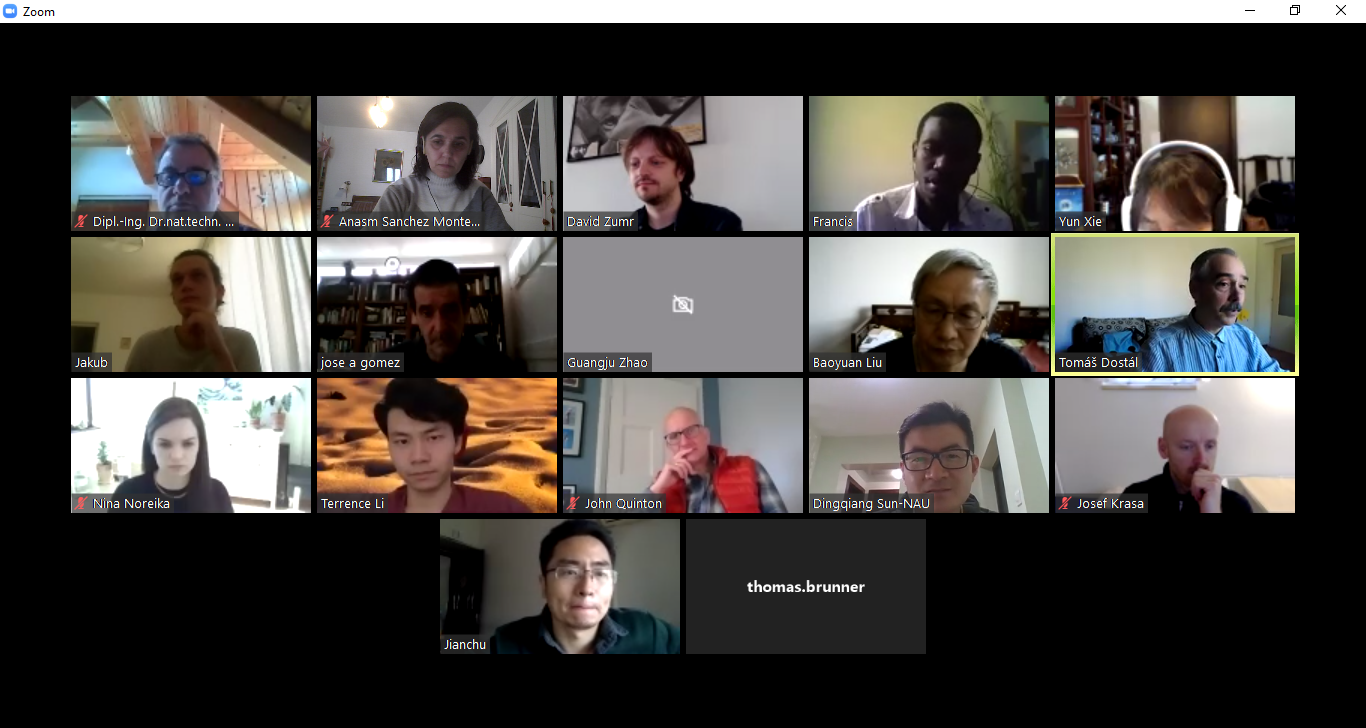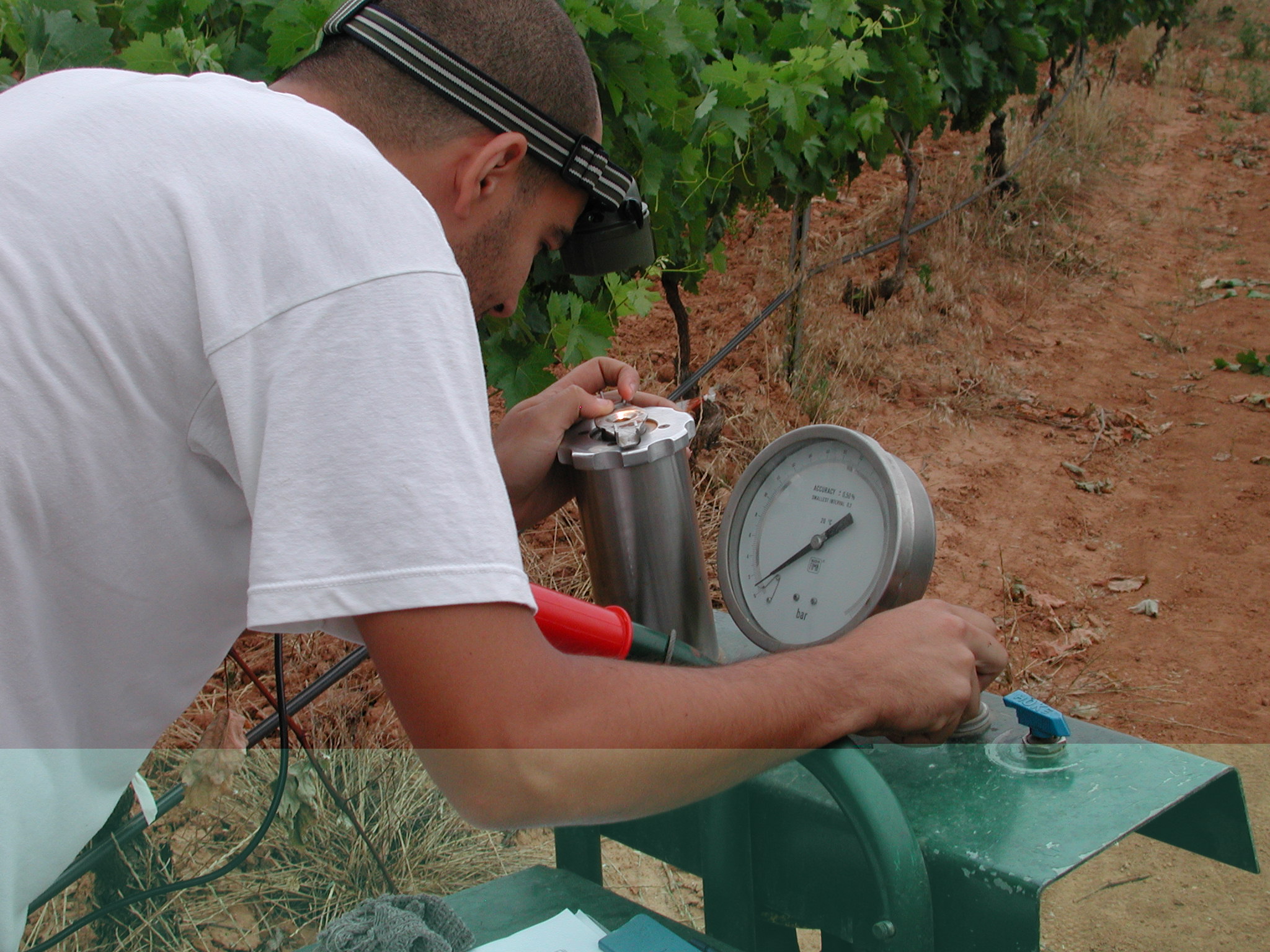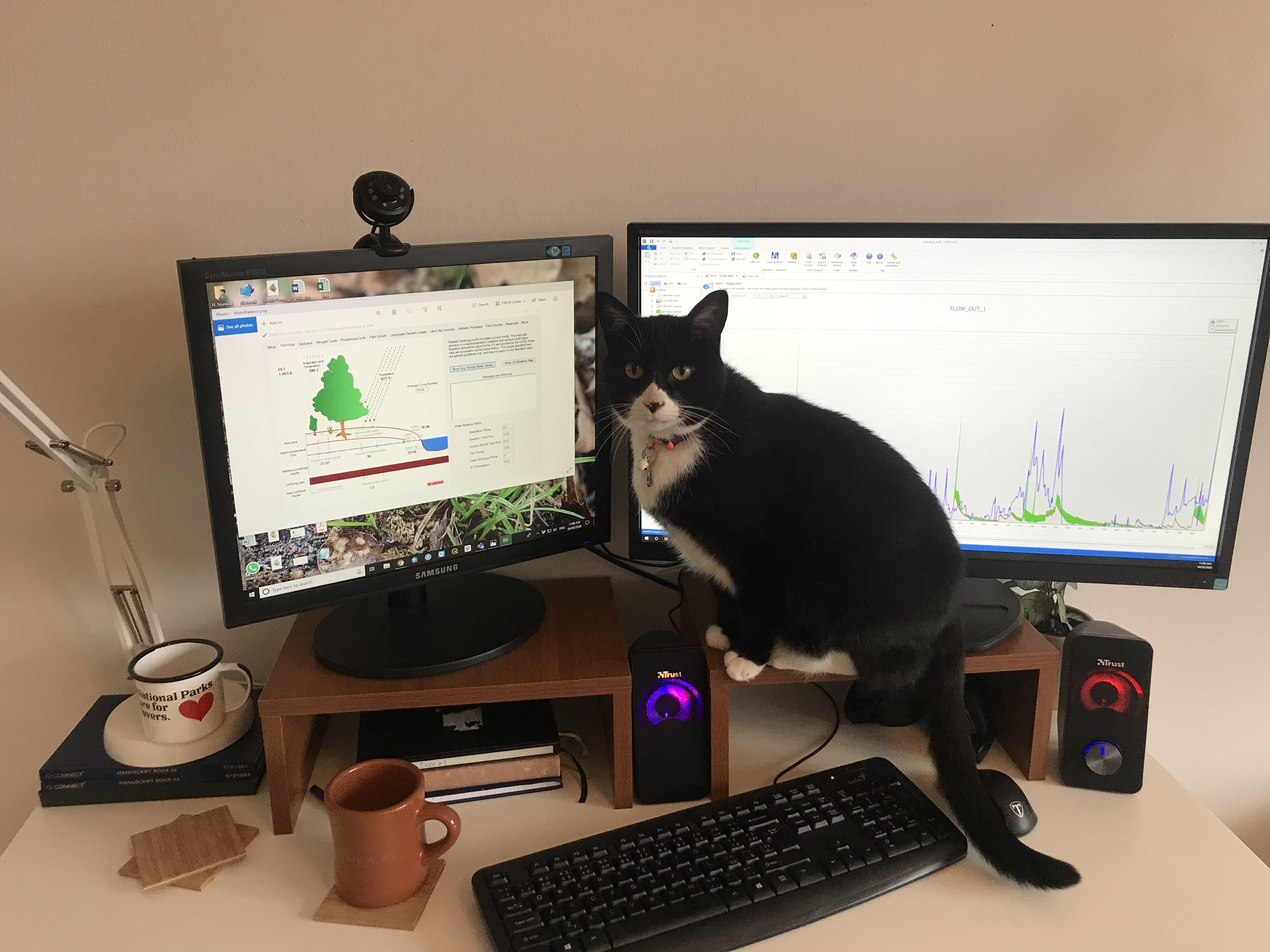SHui adapting to COVID-19
The pandemic is also affecting SHui, with some field and laboratory experiments postponed, and partners now adapting to work from home. However, Chinese and EU partners are adjusting to fulfil project tasks and keep research progressing as best they can.
Tomáš Dostál, CVUT:
“A virtual meeting of sub WP 2.2 – Hydrological modelling was organized 1st April 2020 via ZOOM. Eighteen partners participated in the meeting – 5 from China, 13 from Europe (Czech Republic, Austria, Spain and UK) – lasting 2 hours. Five PhD students presented their results on applying mathematical models to European experimental catchments. Further plans for cooperation were discussed and the preparation/structure of three common papers was confirmed. All participants found the meeting useful and agreed to arrange monthly virtual sessions.”

WP 2.2 – Hydrological modelling meeting.
Diego Intrigliolo, CEBAS-CSIC:
“Since only desk work can currently be carried out due to COVID-19 pandemic, we took advantage of previous data collected in a Tempranillo vineyard to calibrate and validate a soil water balance model that predicts midday stem water potential (Ystem), an indicator employed for irrigation management. The model tended to provide Ystem values more negative than those measured, although it reproduced the temporal dynamics of Ystem over the growing season.”

Diego Intrigliolo recording leaf water potential pre-lockdown.
Jose A. Gomez, Instituto de Agricultura Sostenible – CSIC, Project Coordinator:
“I am developing manuscripts and model analyses at home, pursuing the reporting and coordination of SHui, and in general maintaining all on-going activities (e.g. SHui session at the next EGU which will be online). Like other people of my lab, I am allowed to do some essential tasks in our field experiments, providing I go alone and my director has issued me a specific permit for this task.. Detailed sampling or tasks that need to be performed by several people have been cancelled, which will result in a COVID-19 gap in our long-term experiments.”
Tomas Roquette Tenreiro, PhD student at University of Cordoba:
“Since agriculture is essential, I‘ve been authorized to visit a commercial farm approximately once a week to maintain indispensable tasks (e.g. measurement of crop physiological parameters, maintenance of equipment, etc.). These high-priority tasks have been combined with home working including data analysis, modelling, programming and scientific writing. I‘ve postponed a dissemination meeting with farmers and consultants that would happen later in April, and am studying alternative strategies, such as web meetings.”
The lockdown has brought some unusual visitors to our work environments…

Nina Noreika’s workstation, PhD student at CVUT.

0 comments